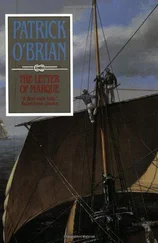Patrick O'Brian - The Truelove
Здесь есть возможность читать онлайн «Patrick O'Brian - The Truelove» весь текст электронной книги совершенно бесплатно (целиком полную версию без сокращений). В некоторых случаях можно слушать аудио, скачать через торрент в формате fb2 и присутствует краткое содержание. Жанр: Книги. Описание произведения, (предисловие) а так же отзывы посетителей доступны на портале библиотеки ЛибКат.
- Название:The Truelove
- Автор:
- Жанр:
- Год:неизвестен
- ISBN:нет данных
- Рейтинг книги:3 / 5. Голосов: 1
-
Избранное:Добавить в избранное
- Отзывы:
-
Ваша оценка:
- 60
- 1
- 2
- 3
- 4
- 5
The Truelove: краткое содержание, описание и аннотация
Предлагаем к чтению аннотацию, описание, краткое содержание или предисловие (зависит от того, что написал сам автор книги «The Truelove»). Если вы не нашли необходимую информацию о книге — напишите в комментариях, мы постараемся отыскать её.
The Truelove — читать онлайн бесплатно полную книгу (весь текст) целиком
Ниже представлен текст книги, разбитый по страницам. Система сохранения места последней прочитанной страницы, позволяет с удобством читать онлайн бесплатно книгу «The Truelove», без необходимости каждый раз заново искать на чём Вы остановились. Поставьте закладку, и сможете в любой момент перейти на страницу, на которой закончили чтение.
Интервал:
Закладка:
'They are very young, you know.'
'I was younger still.' A fruit-pigeon landed on the other bank of the stream and drank a long draught. 'As a medical man you must have come across incestuous families?'
'Often and often.'
'Though perhaps incest is too strong a word as far as I am concerned: my guardian was only some remote connexion. I went to him when I was about the size of Emily. He lived in quite a large house with a park and a lake, very secluded: pleasant enough. I believe there had been deer in the park in his father's time, but he lived almost entirely indoors, in his library most of the time, and he took no notice of poachers: he had no notion of sporting. He was a shy, kind, nervous man, tall and thin; I used to think him very old, but he cannot have been, since his niece Frances, his older sister's daughter, was only a little older than I was myself. The servants really were old, however: they had been there in his parents' days. He was a learned man, and kind, and a very good and patient teacher; I was really fond of him, in spite of ... I did not much care for Frances, though since we had no other companions we played together and ran about in the garden and the park. We were jealous of one another, jealous for his regard, and that did wonders for our lessons: my guardian -I called him Cousin Edward - for Latin and English reading and writing and a string of unfortunate French governesses for the rest. They never stayed, saying the place was too remote; and it is true that the lanes were so narrow and deep that there was no getting the carriage as far as the church in winter except when there was a strong frost. Yet we were not so very isolated after all. The tradesmen came, which was always an event; and people used to call on Aunt Cheyney, the old lady who lived upstairs, but never left her room for fear of taking cold. Mrs Bellingham drove over from Bishop's Thornton almost every week in summer, and when the roads were too dirty she would ride across, taking the high country. She and Aunt Cheyney taught us how to come into a room properly and go out closing the door behind us, and to sit up and be quiet and make our curtsy. There were some others, too, though my guardian disliked visits extremely. I said in spite of just now and I wonder how I can explain it without being gross. We had various games: Cousin Edward played chess and backgammon with us, and battledore and shuttlecock in the big hall; and then there was what we called the games in the dark, with lights put out, curtains drawn, a kind of hide and seek; and sometimes he would catch the one, sometimes the other, and pretend to eat us while we screamed. Yet after a while it took a different turn. He was always very gentle; he hardly ever hurt me; and he seemed to think that though our game was private it was of no great importance.
Frances and I never spoke about it to one another. But when we went to school in Winchester - do you know Winchester?' The question made the strangest contrast with her toneless monologue.
'Only by repute. I know little of England.'
'It was a convent of French Dominicans, and many of the girls were emigres' daughters. But when we were there and we heard the whispering and giggling and wild suppositions about marriage, childbirth, and what went before it, we looked at one another with perfect understanding though we neither of us ever mentioned it in words. It was there that I began to have some notion of what had happened. Though I still could not make out why there was so much fuss. The first part olfoeda est in coitu et brevis voluptas I could understand perfectly well, but not the second. I could not associate it with the least degree of pleasure, however short: and so a great deal that I read and heard - romantic attachments, swimming the Hellespont and so on - remained incomprehensible, in so far as they were for that end, the right true end. So we concealed our knowledge of these matters; and we soon learned to control our learning too. We knew far more Latin than the other girls. That was one of the reasons for our unpopularity: my violence was another.
'When we came back from school, for eventually the nuns would not keep me any longer and I cannot blame them, we found everything changed. Aunt Cheyney had died; many of the servants had been turned away; nobody called any more. Only the library and the lessons were the same; and the game in the dark. But then after a while Mr Southam joined in: he was the last remaining visitor, an officer in the army, a big, coarse, arrogant man with some very nasty ways. Cousin Edward said we were to be particularly kind to him. We hid as hard as ever we could when he was there: but that was mostly because of his smell and general unpleasantness - the thing itself was of no consequence.
'And so life went on, very slowly, and it seemed to be winter and chilblains most of the time: only the library was heated. Everything grew poorer and poorer. The silver disappeared. Gypsies camped in the park on the far side of the lake, where the wall had fallen down; and the garden was head-high with weeds. All the servants left except for two very old women who could get no other work and who preferred staying to the poorhouse. The tradesmen stopped calling. The coach had been laid up long since, and a little while before Frances was sent away into Yorkshire we dwindled from a gig to an ass-cart; and in this, when the roads were passable, Cousin Edward went to Alton with a basket. In winter, although he hated riding, he took the pony. I never saw Frances again, by the way, nor heard what became of her. Looking back now, I suppose they got her in child, and either bearing or getting rid of it killed her.' An orchid flower fell in her lap: she looked at it, turning it this way and that, and presently she carried on with her oddly jerking narrative, not unlike inward speech with its own references and allusions. 'It was the pony indeed that was the death of him. Some farm labourers found him thrown down on the road and brought him back on a hurdle. Mrs Bellingham of Bishop's Thornton saw him properly buried; there was a fair congregation and they said my friends would no doubt come for me. The only people who came were Mr Southam and some lawyer's men who went all over the house writing everything down. He told me I was penniless; no provision had been made for me, but he would find me work in St James's. Do you know St James's?' Once again her voice changed entirely to a waking tone.
'Certainly I know it,' said Stephen. 'Do I not stay at Black's every time I am in London?'
'So you are a member of Black's?'
Stephen bowed.
'I used to work on the other side of the road, or rather beyond the other side of the road, behind Button's. Yes, at Mother Abbott's. But I always had a kindness for Black's because it was a member that begged me off when I was to be hanged. Did you ever go to Mother Abbott's?'
'I have sometimes walked across and drunk tea with herself while my friends went upstairs.'
'Then you know the parlour on the right. That was where I worked, keeping the accounts: one of the few things the nuns taught me, apart from French, was keeping accounts neatly and accurately: there or in one of the little rooms beyond, keeping men company while they waited for their girl. Or sometimes they came in just to talk, being lonely. Mother Abbott was very kind to me. She taught me how to dress and undress and she let me have clothes on credit; but she never made me do anything I did not choose to do, and it was not until much later that I obliged as they say, when we were short-handed and the girls were very busy.'
'Forgive me,' said Stephen, leaning forward, seizing a small orthopterous insect and putting it into a collecting-box.
'It is an odd thing, living in a brothel,' said Clarissa, 'and it has a certain likeness to being at sea: you live a particular life, with your own community, but it is not the life of the world in general and you tend to lose touch with the world in general's ideas and language - all sorts of things like that, so that when you go out you are as much a stranger as a sailor is on shore. Not that I had much notion of the world in general anyhow, the ordinary normal adult world, never having really seen it. I tried to make it out by novels and plays, but that was not much use: they all went on to such an extent about physical love, as though everything revolved about it, whereas for me it was not much more important than blowing my nose - chastity or unchastity neither here nor there - absurd to make fidelity a matter of private parts: grotesque. I took no pleasure in it, except in giving a little when I happened to like the man - I had some agreeable clients - or felt sorry for him. It was sometimes from them that I tried to find out what the world in general really thought. Obviously on the face of it Mother Abbott's customers belonged to the less rigid side, but they reflected the rest and I did learn a certain amount from them. There was one lonely man who used to come and sit with me for hours and tell me about his greyhounds: he was part of a menage a trois; his wife and mistress were great friends; he had children by both; and the mistress, who was a widow, had children of her own. And they all lived together in one house, a vast great house in Piccadilly. Yet he and they and everyone about him were received everywhere, prodigiously respected. So where is the truth of all this outcry against adultery? Is it all hypocritical? I am still puzzled. It is true that he was very grand when he had his clothes on: the blue ribbon is the Garter, is it not? So perhaps...'
Читать дальшеИнтервал:
Закладка:
Похожие книги на «The Truelove»
Представляем Вашему вниманию похожие книги на «The Truelove» списком для выбора. Мы отобрали схожую по названию и смыслу литературу в надежде предоставить читателям больше вариантов отыскать новые, интересные, ещё непрочитанные произведения.
Обсуждение, отзывы о книге «The Truelove» и просто собственные мнения читателей. Оставьте ваши комментарии, напишите, что Вы думаете о произведении, его смысле или главных героях. Укажите что конкретно понравилось, а что нет, и почему Вы так считаете.












